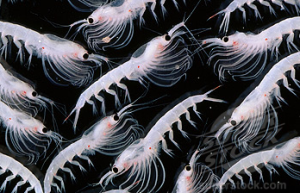THE TRUTH ABOUT KRILL OIL
THE TRUTH ABOUT KRILL OIL
1. Krill oil is NOT sustainable
Several key studies in the past year have the scientific community worried about the fate of krill populations and the potential impact on the global food chain. A study published in March 2011 raises serious concerns over the rapidly declining krill populations “Penguin, Krill Populations in Freefall” . The PEW Environment Group has criticized last year’s certification of the krill fishery by the Marine Stewardship Council, “’Sustainable’ Label for Antarctic Krill Fishery Misleading, says Pew Environment Group”. Furthermore, due to its geographic location (Antarctic) the krill fishery has one of the highest carbon footprints of any fishery in the world.

2. Krill is NOT more potent than fish oil
Some companies claim krill oil to be 500% better absorbed than fish oil. This is far from the truth. The scientific literature seems to indicate that krill oil is about 10% better absorbed due to its phospholipid content. If krill oil and fish oil are taken with a typical meal (which typically contains lots of phospholipids) the absorption is likely identical. Krill oil manufacturers focus hard on the absorption of krill oil simply to justify krill’s extremely high price.
3. Krill contains the (not so) powerful antioxidant astaxanthin
Krill naturally contain the non-essential carotenoid astaxanthin however its health benefits have been grossly exaggerated. A study in 1997 by A Mortensen and LH Skibsted reported astaxanthin to have less antioxidant capacity than other common carotenoids. An experimental trial by Ascenta investigated the antioxidant capacity of several key antioxidants used in omega-3 supplements and found from lowest to highest vitamin E < astaxanthin < lutein < green tea polyphenols.
It appears the only truth you can be sure of for krill oil is that it is all marketing, not science.
This article first appeared on Ascenta http://www.ascentahealth.com/blog/entry/the-truth-about-krill-oil
